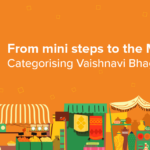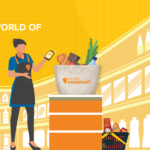Coffee, cherished worldwide, is more than just a beverage; it’s a morning ritual, a cultural tradition, and a social connector. With coffee origin rooted in mystery and legend, coffee has transformed over centuries to become one of the most consumed drinks globally, enjoyed by millions daily. Today, coffeehouses and cafes around the world serve it in a variety of forms—from espresso to cappuccino to cold brews—satisfying diverse tastes and preferences. Known for its ability to stimulate and energize, coffee is revered by students, professionals, and leisure-seekers alike. The journey of coffee from its mythical beginnings to the thriving industry it is today highlights not only the cultural and historical impact of the brew but also its universal appeal that transcends geographical boundaries. This journey continues to evolve, bringing new flavours, preparation methods, and cultural practices that enrich the experience of coffee lovers everywhere.
The History of Coffee: A Mythical Discovery

The history of coffee traces back to the 9th century in Ethiopia, with a popular legend about a goat herder named Kaldi. As the story goes on, Kaldi notices his goats behaving unusually energetically after eating red berries from a certain tree. Curious, he sampled the berries himself and soon experienced a newfound energy. Excited by his discovery, Kaldi shared the berries with a local monk, who saw the potential in using them to stay awake during long prayers. The story spread, and people began experimenting with these energizing berries, eventually roasting and brewing them into the drink we know today. Over time, the use of coffee expanded from Ethiopia to Yemen, where it became an essential part of Sufi religious practices. From Yemen, coffee began its journey to the Arab world and beyond, capturing the attention and taste buds of many.
Who is the Founder of Coffee?

While no single person can be credited as the founder of coffee, several figures and cultures played pivotal roles in its early spread and development. The Ethiopian legend of Kaldi and his discovery of the energizing coffee berries is among the most well-known stories, even though it may be more myth than fact. Following Kaldi’s legendary discovery, Arab traders are believed to have been some of the earliest cultivators of coffee. They established coffee-growing techniques in Yemen, particularly around the 15th century, and are credited with creating the first coffee beverage by roasting and brewing the beans. The Sufis, a mystical sect within Islam, were early adopters, using coffee to help them stay alert during long hours of meditation and prayer. By the 16th century, coffee had spread through the Middle East to regions like Turkey and Persia, and its consumption had become a social and cultural phenomenon. Ultimately, coffee’s journey involved many regions and peoples, making it a truly global beverage with multiple origin stories rather than a single “founder.”
The History of Coffee in Europe

Coffee made its way to Europe in the 17th century, initially introduced through Venetian traders who encountered it during their travels in the Middle East. Despite initial scepticism, coffee quickly gained popularity across European cities such as London, Paris, and Vienna. Coffeehouses, sometimes called “penny universities” in England due to their accessibility and intellectual ambience, became social hubs where people gathered to discuss news, politics, and ideas. London’s first coffeehouse, established in 1652, set a trend that spread rapidly across the continent. By the late 17th century, Paris had embraced coffee, with cafes sprouting up that attracted philosophers, artists, and intellectuals, shaping the vibrant cafe culture that endures to this day. Coffee even became a fashionable drink in Vienna after the Ottoman siege, and legend has it that Viennese cafes began serving coffee with milk and sugar, thus introducing variations that are still enjoyed. Coffee’s arrival in Europe sparked a cultural movement that popularized it beyond the elite, making it an everyday beverage enjoyed in homes, cafes, and social gatherings across the continent.
Order Coffee Right at Your Home from Swiggy

Craving the rich taste of freshly brewed coffee, but don’t feel like stepping out? Swiggy brings your favourite coffee right to your doorstep! Whether you’re in the mood for a strong espresso, a creamy cappuccino, or a refreshing iced coffee, Swiggy’s got you covered with options from top coffee restaurants near me. With a wide variety of choices, you can customize your coffee to your liking, add flavours, and even pair it with a snack for the perfect treat. Browse through the app to find your go-to coffee shops or discover new places with highly-rated coffee options. Swiggy makes it easy to enjoy premium-quality coffee from beverages restaurants, delivered fresh and just the way you like it. Take a break from your day, savour the taste of expertly brewed coffee, and let Swiggy take care of the delivery. Order your coffee today and elevate your home coffee experience with Swiggy’s hassle-free service!
Conclusion
Coffee’s journey from the Ethiopian highlands to global popularity illustrates not only the drink’s rich history but also its profound impact on cultures worldwide. Today, it has become a global phenomenon, transcending the origin of coffee to become a drink enjoyed by millions daily, from morning rituals to social gatherings. Its role in connecting people, fueling creativity, and sparking conversations has turned coffee into more than a mere beverage; it’s a cultural icon. This journey of coffee—from humble beginnings to a universally beloved brew—celebrates not only the drink itself but also the rich tapestry of cultures and traditions that have contributed to its story.
FAQ
1. Is coffee Originally from India?
No, coffee is not originally from India. The beverage traces its roots back to the coffee plant, which is native to Ethiopia. Coffee was introduced to India in the late 17th century by Baba Budan, a Sufi saint who smuggled seven coffee seeds from Yemen into the country. This act led to the establishment of coffee plantations in the Indian states of Karnataka, Kerala, and Tamil Nadu, and India has since become a notable coffee producer in its own right.
2. Why is coffee so popular worldwide?
Coffee’s global popularity stems from its unique ability to energize and foster social connections. Its rich flavors, cultural significance, and adaptability to local tastes make it a beloved beverage across diverse communities.
3. What is Third Wave Coffee?
Third Wave Coffee is a premium coffee chain in India, inspired by the global third-wave coffee movement. It offers carefully crafted brews, emphasizing quality, single-origin beans, and a cozy café experience for coffee lovers.
Author Bio
Satisfying your cravings, one bite at a time. Discover the best eats, trends, and uncover the hidden gems with us to make your online ordering or dining experience a memorable one.










































































